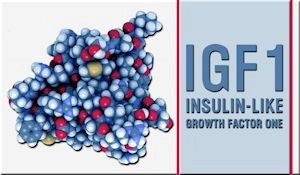Introduction to Testosterone and Its Role
Testosterone, often dubbed the quintessential male hormone, plays a pivotal role in various aspects of male physiology and behavior. Beyond its well-known functions in muscle development and sexual health, testosterone is intricately linked to risk-taking behaviors. This article delves into the scientific underpinnings of how testosterone influences the propensity for bold decisions among American males.
The Biological Basis of Risk-Taking
Risk-taking is a complex behavior influenced by a myriad of factors, including genetics, environment, and hormones. Testosterone, in particular, has been identified as a key modulator of risk-taking tendencies. Studies have shown that higher levels of testosterone are associated with increased risk-taking behaviors in various contexts, from financial decisions to physical activities.
Testosterone and the Brain
The relationship between testosterone and risk-taking can be traced to its effects on the brain. Testosterone receptors are found in regions of the brain associated with decision-making and reward processing, such as the amygdala and the prefrontal cortex. When testosterone levels are elevated, these areas of the brain may become more sensitive to potential rewards, thereby increasing the likelihood of engaging in riskier behaviors.
Empirical Evidence Linking Testosterone to Risk-Taking
Numerous studies have provided empirical evidence supporting the link between testosterone and risk-taking. For instance, a study published in the journal "Hormones and Behavior" found that men with higher testosterone levels were more likely to engage in risky financial investments. Another study in "Psychoneuroendocrinology" demonstrated that testosterone administration increased risk-taking in a gambling task.
Testosterone Levels and Age
It's important to note that testosterone levels naturally fluctuate throughout a man's life. Peak levels are typically observed during adolescence and early adulthood, which may explain the heightened risk-taking behaviors observed in these age groups. As men age, testosterone levels gradually decline, which could potentially lead to a decrease in risk-taking propensity.
Cultural and Social Influences
While testosterone plays a significant role in risk-taking, it is not the sole determinant. Cultural and social factors also significantly influence how American males perceive and engage in risk-taking behaviors. For instance, societal norms and expectations about masculinity can amplify the effects of testosterone, encouraging more daring actions.
Health Implications of Risk-Taking
Understanding the link between testosterone and risk-taking is crucial for addressing the health implications of such behaviors. High-risk activities can lead to injuries, financial losses, and other negative outcomes. By recognizing the biological drivers of these behaviors, healthcare providers can better tailor interventions and preventive measures to mitigate potential risks.
Managing Testosterone Levels
For American males concerned about the influence of testosterone on their risk-taking behaviors, managing testosterone levels through lifestyle changes or medical intervention may be beneficial. Regular exercise, a balanced diet, and stress management can help maintain healthy testosterone levels. In cases where testosterone levels are excessively high or low, consulting a healthcare provider for appropriate treatment options is advisable.
Conclusion: Balancing Biology and Behavior
In conclusion, the science behind testosterone and risk-taking offers valuable insights into the biology of bold decisions among American males. While testosterone significantly influences risk-taking behaviors, it is essential to consider the interplay of biological, cultural, and social factors. By understanding these dynamics, individuals can make more informed choices and healthcare professionals can provide better guidance to promote healthier outcomes.
This exploration into the relationship between testosterone and risk-taking not only enhances our understanding of human behavior but also underscores the importance of a holistic approach to managing health and well-being.
Contact Us For A Fast And Professional Response

- Genetics and Testosterone: American Males' Predisposition and Health Implications [Last Updated On: February 19th, 2025] [Originally Added On: February 19th, 2025]
- Fueling Masculinity: Unleashing the Power of Testosterone [Last Updated On: February 25th, 2025] [Originally Added On: February 25th, 2025]
- Decoding Testosterone: Unraveling the Impact of the Master Hormone on Your Existence [Last Updated On: February 26th, 2025] [Originally Added On: February 26th, 2025]
- The Evolving Chronicle of Testosterone: A Voyage Through Time [Last Updated On: February 27th, 2025] [Originally Added On: February 27th, 2025]
- The Unexplored Power: Advantages of Optimum Testosterone Levels beyond Muscle Development [Last Updated On: February 28th, 2025] [Originally Added On: February 28th, 2025]
- Decoding the Testosterone Code: Dissecting Myths and Misconceptions [Last Updated On: February 28th, 2025] [Originally Added On: February 28th, 2025]
- Unveiling the Vital Role of Testosterone in Women's Health: A Comprehensive Overview [Last Updated On: March 1st, 2025] [Originally Added On: March 1st, 2025]
- Unraveling the Powerhouse of Vitality: The Definitive Guide to Understanding Testosterone [Last Updated On: March 1st, 2025] [Originally Added On: March 1st, 2025]
- Unlocking Male Vitality: A Dietary Approach to Elevating Testosterone Levels Naturally [Last Updated On: March 2nd, 2025] [Originally Added On: March 2nd, 2025]
- Enhancing Testosterone Production through Physical Activity: The Impact of Resistance Training and HIIT on Hormonal Health [Last Updated On: March 3rd, 2025] [Originally Added On: March 3rd, 2025]
- Understanding Testosterone's Impact on Male Confidence and Mental Health [Last Updated On: March 4th, 2025] [Originally Added On: March 4th, 2025]
- Understanding Testosterone's Role in Male Health and Strategies to Maintain Its Levels [Last Updated On: March 5th, 2025] [Originally Added On: March 5th, 2025]
- Comprehensive Guide to Testosterone: Importance, Functions, and Lifecycle in Men [Last Updated On: March 6th, 2025] [Originally Added On: March 6th, 2025]
- Optimizing Men's Health: Boost Testosterone Naturally Through Diet, Exercise, and Lifestyle Changes [Last Updated On: March 7th, 2025] [Originally Added On: March 7th, 2025]
- The Evolution of Testosterone Therapy: Innovations, Safety, and Future Potential for Men's Health [Last Updated On: March 8th, 2025] [Originally Added On: March 8th, 2025]
- Managing Testosterone Decline in Aging Men: Strategies for Vitality and Quality of Life [Last Updated On: March 9th, 2025] [Originally Added On: March 9th, 2025]
- Maximizing Masculine Vitality: The Crucial Role of Sleep in Testosterone Regulation [Last Updated On: March 12th, 2025] [Originally Added On: March 12th, 2025]
- Exploring the Horizon: The Future of Hormonal Health and Testosterone Research Trends [Last Updated On: March 13th, 2025] [Originally Added On: March 13th, 2025]
- Unraveling the Nexus of Stress, Cortisol, and Testosterone: A Guide to Hormonal Equilibrium for American Men [Last Updated On: March 13th, 2025] [Originally Added On: March 13th, 2025]
- Unleashing Athletic Potential: The Role of Testosterone in Performance Enhancement [Last Updated On: March 15th, 2025] [Originally Added On: March 15th, 2025]
- Testosterone's Impact on Mood, Memory, and Motivation in American Males [Last Updated On: March 17th, 2025] [Originally Added On: March 17th, 2025]
- Resistance Training Boosts Testosterone: A Guide for American Males [Last Updated On: March 18th, 2025] [Originally Added On: March 18th, 2025]
- Testosterone's Impact on Bone Density in American Males: Mechanisms and Management [Last Updated On: March 19th, 2025] [Originally Added On: March 19th, 2025]
- Testosterone's Crucial Role in Enhancing Immune Function in American Men [Last Updated On: March 19th, 2025] [Originally Added On: March 19th, 2025]
- Testosterone Health for American Males: Supplements, Lifestyle, and Medical Options [Last Updated On: March 19th, 2025] [Originally Added On: March 19th, 2025]
- Testosterone's Impact on Metabolism and Fat Burning in American Males [Last Updated On: March 20th, 2025] [Originally Added On: March 20th, 2025]
- Testosterone's Impact on Cardiovascular Health in American Men: Risks and Benefits [Last Updated On: March 20th, 2025] [Originally Added On: March 20th, 2025]
- Hormonal Balance in Men: Testosterone, Estrogen, and Beyond for Optimal Health [Last Updated On: March 20th, 2025] [Originally Added On: March 20th, 2025]
- Testosterone's Role in Enhancing Workplace Productivity and Drive in American Males [Last Updated On: March 21st, 2025] [Originally Added On: March 21st, 2025]
- Environmental Toxins and Their Impact on Men's Testosterone Levels: A Comprehensive Overview [Last Updated On: March 22nd, 2025] [Originally Added On: March 22nd, 2025]
- Testosterone's Role in Male Libido: Strategies to Boost Desire and Intimacy [Last Updated On: March 22nd, 2025] [Originally Added On: March 22nd, 2025]
- Testosterone's Vital Role in American Males' Cardiovascular Health and Fitness [Last Updated On: March 22nd, 2025] [Originally Added On: March 22nd, 2025]
- Low Testosterone in Men: Symptoms, Causes, and Effective Management Strategies [Last Updated On: March 22nd, 2025] [Originally Added On: March 22nd, 2025]
- Modern American Diet's Impact on Testosterone Levels and Mitigation Strategies [Last Updated On: March 22nd, 2025] [Originally Added On: March 22nd, 2025]
- Testosterone Revolution: Redefining Masculinity and Enhancing Men's Health in America [Last Updated On: March 23rd, 2025] [Originally Added On: March 23rd, 2025]
- Testosterone's Role in Muscle Recovery and Growth for American Males [Last Updated On: March 23rd, 2025] [Originally Added On: March 23rd, 2025]
- Testosterone's Impact on Cognitive Performance in American Males: A Comprehensive Analysis [Last Updated On: March 23rd, 2025] [Originally Added On: March 23rd, 2025]
- Optimizing Testosterone in American Men Through Positive Mental Strategies [Last Updated On: March 23rd, 2025] [Originally Added On: March 23rd, 2025]
- Meditation Boosts Testosterone: A Holistic Approach for American Males' Health [Last Updated On: March 23rd, 2025] [Originally Added On: March 23rd, 2025]
- Understanding Testosterone: Importance, Symptoms, and Managing Health Proactively [Last Updated On: March 24th, 2025] [Originally Added On: March 24th, 2025]
- Testosterone's Role in Sleep Quality: Strategies for American Men [Last Updated On: March 24th, 2025] [Originally Added On: March 24th, 2025]
- Understanding Testosterone: Levels, Factors, and Health Impacts for American Men [Last Updated On: March 24th, 2025] [Originally Added On: March 24th, 2025]
- Key Vitamins and Minerals Boosting Testosterone in American Males [Last Updated On: March 24th, 2025] [Originally Added On: March 24th, 2025]
- Testosterone's Impact on Body Image and Self-Esteem in American Men [Last Updated On: March 24th, 2025] [Originally Added On: March 24th, 2025]
- Boosting Testosterone: Diet, Exercise, Sleep, and Stress Management for American Men [Last Updated On: March 24th, 2025] [Originally Added On: March 24th, 2025]
- Testosterone's Impact on Mental Health in American Men: Depression, Anxiety, and Cognition [Last Updated On: March 24th, 2025] [Originally Added On: March 24th, 2025]
- Testosterone's Role in Longevity: Insights for American Males [Last Updated On: March 24th, 2025] [Originally Added On: March 24th, 2025]
- Creativity Boosts Testosterone: Music and Art's Role in Men's Health [Last Updated On: March 24th, 2025] [Originally Added On: March 24th, 2025]
- Testosterone and Chronic Diseases: Management Strategies for American Males [Last Updated On: March 24th, 2025] [Originally Added On: March 24th, 2025]
- Exploring Testosterone Replacement Therapy: Benefits, Risks, and Realities for American Males [Last Updated On: March 24th, 2025] [Originally Added On: March 24th, 2025]
- Declining Testosterone Levels in American Males: Trends, Causes, and Health Strategies [Last Updated On: March 24th, 2025] [Originally Added On: March 24th, 2025]
- Urban vs. Rural Living: Impacts on Testosterone Levels in American Males [Last Updated On: March 25th, 2025] [Originally Added On: March 25th, 2025]
- Andropause: Understanding Male Menopause and Testosterone's Role in American Men's Health [Last Updated On: March 25th, 2025] [Originally Added On: March 25th, 2025]
- Testosterone's Impact on Ambition and Success in American Males [Last Updated On: March 25th, 2025] [Originally Added On: March 25th, 2025]
- Outdoor Activities Boost Testosterone: A Natural Health Strategy for American Males [Last Updated On: March 25th, 2025] [Originally Added On: March 25th, 2025]
- Optimizing Testosterone: The Synergy of Rest and Nutrition for American Men [Last Updated On: March 26th, 2025] [Originally Added On: March 26th, 2025]
- Intermittent Fasting: Boosting Testosterone Levels in American Men [Last Updated On: March 26th, 2025] [Originally Added On: March 26th, 2025]
- Testosterone's Impact on Mental Resilience in American Men: Strategies and Insights [Last Updated On: March 26th, 2025] [Originally Added On: March 26th, 2025]
- Testosterone Research Journey: From Lab to Clinic, Enhancing American Males' Health [Last Updated On: March 26th, 2025] [Originally Added On: March 26th, 2025]
- Digital Tools Revolutionize Testosterone Monitoring for American Males [Last Updated On: March 26th, 2025] [Originally Added On: March 26th, 2025]
- Testosterone's Impact on Athletic Performance: Myths, Facts, and Future Research for American Males [Last Updated On: March 26th, 2025] [Originally Added On: March 26th, 2025]
- Balancing Work and Health: Strategies for American Men to Maintain Testosterone Levels [Last Updated On: March 27th, 2025] [Originally Added On: March 27th, 2025]
- Low Testosterone: Health Condition's Economic Impact on Society and Workforce [Last Updated On: March 27th, 2025] [Originally Added On: March 27th, 2025]
- Hormonal Health and Testosterone: Vital Insights for American Men's Well-being [Last Updated On: March 27th, 2025] [Originally Added On: March 27th, 2025]
- Social Interactions Impact Testosterone Levels in American Males: A Comprehensive Study [Last Updated On: March 27th, 2025] [Originally Added On: March 27th, 2025]
- Boost Testosterone Naturally with Resistance Band Workouts for American Men [Last Updated On: March 28th, 2025] [Originally Added On: March 28th, 2025]
- Gut Health's Impact on Testosterone Levels in American Males: A Comprehensive Overview [Last Updated On: March 28th, 2025] [Originally Added On: March 28th, 2025]
- Personalized Medicine Revolutionizes Testosterone Therapy for American Males [Last Updated On: March 30th, 2025] [Originally Added On: March 30th, 2025]
- Revolutionizing Male Health: Advanced Technologies in Testosterone Optimization [Last Updated On: March 30th, 2025] [Originally Added On: March 30th, 2025]
- Testosterone's Impact on Male Skin, Hair, and Aesthetic Health Management [Last Updated On: March 31st, 2025] [Originally Added On: March 31st, 2025]
- Testosterone's Dual Impact on Immune Health in American Men: Suppression and Protection [Last Updated On: March 31st, 2025] [Originally Added On: March 31st, 2025]
- Testosterone and Body Composition: Optimizing Health for American Males [Last Updated On: April 2nd, 2025] [Originally Added On: April 2nd, 2025]
- Testosterone's Comprehensive Impact on Men's Sexual Health and Well-being [Last Updated On: April 4th, 2025] [Originally Added On: April 4th, 2025]
- Alcohol and Smoking: Impacts on Testosterone Levels in American Males [Last Updated On: April 4th, 2025] [Originally Added On: April 4th, 2025]
- Acupuncture's Role in Enhancing Testosterone Levels in American Men: A Comprehensive Overview [Last Updated On: April 5th, 2025] [Originally Added On: April 5th, 2025]
- HIIT Boosts Testosterone: Optimal Fitness Strategy for American Males [Last Updated On: April 7th, 2025] [Originally Added On: April 7th, 2025]
- Mindful Living Boosts Testosterone: Meditation, Yoga, Sleep, Nutrition, and Exercise for American Men [Last Updated On: April 9th, 2025] [Originally Added On: April 9th, 2025]
- Exploring Testosterone Boosters: Efficacy, Types, and Safe Usage for American Men [Last Updated On: April 9th, 2025] [Originally Added On: April 9th, 2025]
- Testosterone's Role in Social Dominance and Evolutionary Biology for American Males [Last Updated On: April 9th, 2025] [Originally Added On: April 9th, 2025]
- Seasonal Testosterone Fluctuations in American Males: Causes and Management Strategies [Last Updated On: April 9th, 2025] [Originally Added On: April 9th, 2025]

















